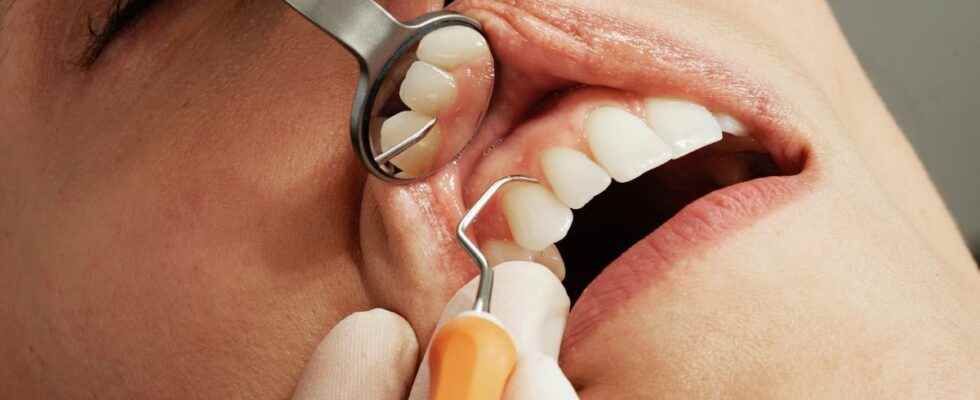Published on
Updated
Reading 2 mins.
Spoiled teeth, swollen gums and oral cancer: nearly half of the world’s population suffers from oral diseases, the World Health Organization announced on Thursday.
In a new report, the WHO has found that 45% of the world’s population, or about 3.5 billion people, suffer from oral diseases.
“Oral health has long been neglected in global health“WHO chief Tedros Adhanom Ghebreyesus said in a statement, although low-cost prevention measures would avert many of them.
The WHO, which thus delivers the first complete picture of the burden of oral diseases in 194 countries, has revealed an increase of 1 billion in cases recorded over the past 30 years.
This is “a clear indication that many people do not have access to the prevention and treatment of oral disease“, the most common of which are dental cavities, gum disease, tooth loss and oral cancers, according to the report.
Untreated tooth decay is the most common disease. It affects some 2.5 billion people worldwide, while around one billion suffer from gum disease, which is a major cause of total tooth loss.
And around 380,000 new cases of oral cancer are diagnosed each year, according to the WHO.
The main risk factors are high sugar consumption, but also tobacco use and alcohol consumption.
WHO encourages authorities to address these common risk factors”by promoting a balanced and low-sugar diet, stopping tobacco consumption in all its forms, reducing alcohol consumption and better access to effective and affordable fluoridated toothpaste“.
“A financial burden”
The report highlights glaring inequities in access to oral health services, highlighting the enormous burden that these often highly visible and impossible to hide diseases place on the most vulnerable and disadvantaged populations.
According to the report, three-quarters of all people with oral disease live in low- and middle-income countries, but everywhere in the world it is the poor, the disabled or the elderly and vulnerable who are deprived of adequate access to expensive care.
This can lead to “catastrophic costs and significant financial burden on families and communities“, said the WHO.
At the same time, dependence on highly specialized providers and high-tech equipment makes these services inaccessible to many, while lack of information and prophylaxis make it impossible to act in time.
The WHO has presented a long list of proposals on how to tackle the problem, including calling on countries to include oral health services in their primary health care systems.

